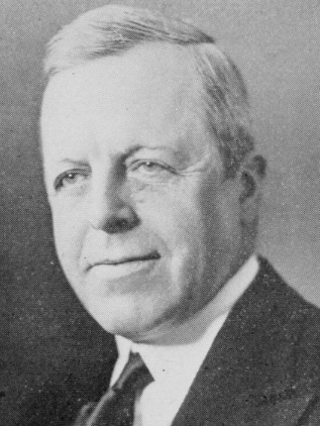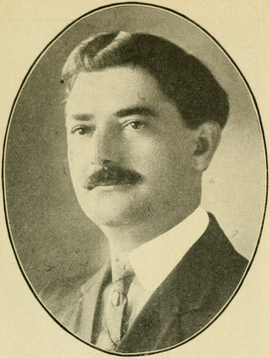
Joseph Buell Ely was an American lawyer and Democratic politician from Massachusetts. As a conservative Democrat, Ely was active in party politics from the late 1910s, helping to build, in conjunction with David I. Walsh, the Democratic coalition that would gain an enduring political ascendancy in the state. From 1931 to 1935, he served as the 52nd Governor. He was opposed to the federal expansion of the New Deal, and was a prominent intra-party voice in opposition to the policies of Franklin Delano Roosevelt. In 1944 he made a brief unsuccessful bid for the Democratic presidential nomination.

The 1944 United States Senate special election in Massachusetts was held on November 7, 1944. Republican Governor Leverett Saltonstall was elected to finish the term of Henry Cabot Lodge Jr., who had resigned from the Senate to serve in World War II.

The United States Senate election of 1930 in Massachusetts was held on November 4, 1930. Incumbent Republican Senator Frederick H. Gillett did not run for re-election. In the open race to succeed him, Democratic Mayor of Fitchburg Marcus A. Coolidge defeated former U.S. Senator William M. Butler.
The 1966 Massachusetts general election was held on November 8, 1966, throughout Massachusetts. Primary elections took place on September 13.
A Massachusetts general election was held on November 3, 1964, in the Commonwealth of Massachusetts.
A Massachusetts general election was held on November 4, 1958, in the Commonwealth of Massachusetts.
A Massachusetts general election was held on November 6, 1956, in the Commonwealth of Massachusetts.
A Massachusetts general election was held on November 4, 1952 in the Commonwealth of Massachusetts. Primary elections took place on September 16.
The 1950 Massachusetts general election was held on November 7, 1950, throughout Massachusetts. Primary elections took place on September 19.
The 1946 Massachusetts general election was held on November 5, 1946, throughout Massachusetts. Primary elections took place on June 18.

The 1922 Massachusetts gubernatorial election was held on November 7, 1922.

The 1924 Massachusetts gubernatorial election was held on November 4, 1924.

The 1926 Massachusetts gubernatorial election was held on November 2, 1926.

The 1928 Massachusetts gubernatorial election was held on November 6, 1928.

The 1932 Massachusetts gubernatorial election was held on November 8, 1932.

The 1934 Massachusetts gubernatorial election was held on November 6, 1934.

Edmond Patrick Talbot (1884-1951) was a Canadian-born American politician who served as Mayor of Fall River, Massachusetts, and Sheriff of Bristol County, Massachusetts. He was the Democratic nominee for Lieutenant Governor of Massachusetts in 1926.

The 1928 Wisconsin gubernatorial election was held on November 6, 1928. Primary elections were held on September 4, 1928. Incumbent Republican Governor Fred R. Zimmerman was defeated in the Republican primary. Republican nominee Walter J. Kohler Sr. defeated Democratic nominee Albert G. Schmedeman with 55.38% of the vote.

The 1932 Wisconsin gubernatorial election was held on November 8, 1932. Incumbent Republican Governor Philip La Follette was defeated in the Republican primary, and in the midst of the Great Depression and nationwide voter dissatisfaction with the Republican Party, Democratic nominee Albert G. Schmedeman defeated Republican nominee Walter J. Kohler Sr. and Socialist nominee Frank Metcalfe with 52.48% of the vote. Schmedeman became the first Democrat to win a gubernatorial election in Wisconsin since George Wilbur Peck in 1892. Two years later, in 1934, La Follette would run for governor again and defeated Schmedeman, this time running with the Progressive Party.
The 1944 Massachusetts general election was held on November 7, 1944, throughout Massachusetts. Primary elections took place on July 11.
















